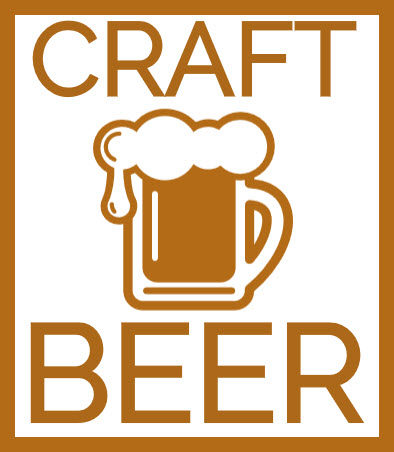Introduction
The craft brewing industry has seen substantial growth over the last few decades, becoming an integral part of many local economies and cultures. Small, independent brewing operations offer unique and appealing alternatives to mass-produced beers, contributing to their widespread popularity. However, despite their success, craft breweries must navigate a complex array of legal challenges to operate effectively, challenges that can significantly impact their operations, growth potential, and overall sustainability. Understanding these challenges is essential for both new and established breweries that aim to thrive in this competitive market.
Licensing and Permits
One of the most significant legal obstacles a craft brewery faces is obtaining the necessary licenses and permits. The requirements for these can vary considerably from state to state and even differ on a local level. Generally, most breweries will first need to secure a federal brewing permit, which is issued by the Alcohol and Tobacco Tax and Trade Bureau (TTB). This federal permit is necessary to legally produce and sell beer in the United States.
In addition to this federal requirement, breweries must also acquire a state brewing license. Each state’s licensing processes and criteria can differ markedly, further complicating the process. This duality in licensing often results in a lengthy and multifaceted application process, necessitating an exhaustive attention to regulatory details, paperwork, and often lengthy waiting periods. Failing to navigate this process correctly can result in significant delays in getting a product to market or, in some cases, the inability to operate altogether.
Label Approval
Another crucial compliance area for craft breweries is the label approval process. Labels play a critical role in marketing and consumer recognition, but their design and information are strictly regulated. The TTB mandates specific guidelines that dictate what information must be present on beer labels. This includes essentials such as the brand name, class, and type of beer, net contents, and alcoholic content. These elements are crucial not only for consumer safety but also for maintaining transparency and consistency across the industry.
Moreover, any health-related statements on labels must conform to stringent federal regulations. To enter the market, craft breweries must submit their labels for approval via the TTB’s Certificate of Label Approval (COLA) system. The process of obtaining COLA can be time-consuming and detailed, requiring that breweries ensure all label details comply with TTB rules before their products reach store shelves.
Trademark Issues
A frequently encountered legal challenge in the craft beer industry is trademark disputes. With the vast and increasing number of breweries, ensuring that a brand name, logo, or beer name is unique becomes increasingly complicated. Craft breweries must take careful steps to avoid infringing on existing trademarks, which requires a diligent search and registration process.
Strategies for Avoiding Trademark Issues
Breweries can adopt proactive measures to reduce the likelihood of trademark conflicts and the associated repercussions, such as costly legal battles and rebranding efforts. Conducting exhaustive trademark searches and registering trademarks with the United States Patent and Trademark Office (USPTO) are critical steps. By securing registrations, breweries can establish their brand identity and protect against unauthorized use. Additionally, engaging with legal professionals who specialize in intellectual property can further fortify a brewery’s brand. These experts can offer valuable advice about potential infringements and help navigate complex trademark laws, enhancing the brewery’s operational security and market position.
Distribution Laws
The distribution of craft brewery products remains a challenging and often contentious aspect of the industry. State-level laws heavily regulate how breweries can distribute their products to consumers. Many states enforce a three-tier system that creates separate tiers for producers, distributors, and retailers. This system requires that many breweries partner with independent distributors to reach retailers, which can sometimes cut into a brewery’s profitability due to distributor fees and reduced control over their products’ retailing environments.
Yet, there are variations from state to state. Some states permit breweries to self-distribute up to a certain volume, affording smaller breweries more freedom and control over how their products reach the market. Understanding the nuances of these laws is paramount for breweries aiming to optimize their distribution strategies. This understanding not only necessitates knowledge of state statutes but also the careful negotiation and management of brewery agreements with distributors.
Environmental Regulations
Craft breweries are increasingly recognizing the importance of their environmental impact, particularly concerning waste management and water usage. Federal and state environmental regulations demand compliance to protect natural resources. Breweries may find themselves subject to regulations from the Environmental Protection Agency (EPA), especially regarding wastewater discharge, which can often contain high levels of organic materials and chemicals.
Ensuring compliance with environmental standards requires that breweries adopt sustainable practices tailored to their processes. By managing resource consumption and waste outputs responsibly, breweries not only comply with legal requirements but also enhance their reputation with environmentally conscious consumers.
Employment Laws
Craft breweries, often small businesses, must adhere to a variety of labor regulations to operate ethically and legally. This includes adhering to the provisions of the Fair Labor Standards Act, which governs minimum wage, overtime, and recordkeeping. Additionally, managing employee benefits and maintaining a safe workplace environment are critical components of a brewery’s employment practices.
Understanding and implementing these regulatory requirements is essential for avoiding costly labor disputes and litigation. Moreover, a well-managed employment process can contribute to a positive workplace culture, which is vital for the overall health and productivity of the brewery.
Conclusion
Navigating the multifaceted legal landscape can be challenging for craft breweries. However, a thorough understanding of the various regulations and the adoption of proactive strategies are instrumental in ensuring compliance and minimizing risk. By remaining informed and seeking expert legal guidance, craft breweries can mitigate potential legal issues, enabling them to focus on what they excel at – brewing exceptional beer. Through vigilance and strategic planning, these breweries can sustain their growth and continue to enrich the beer market, even amidst the complex regulatory frameworks they must operate within.

